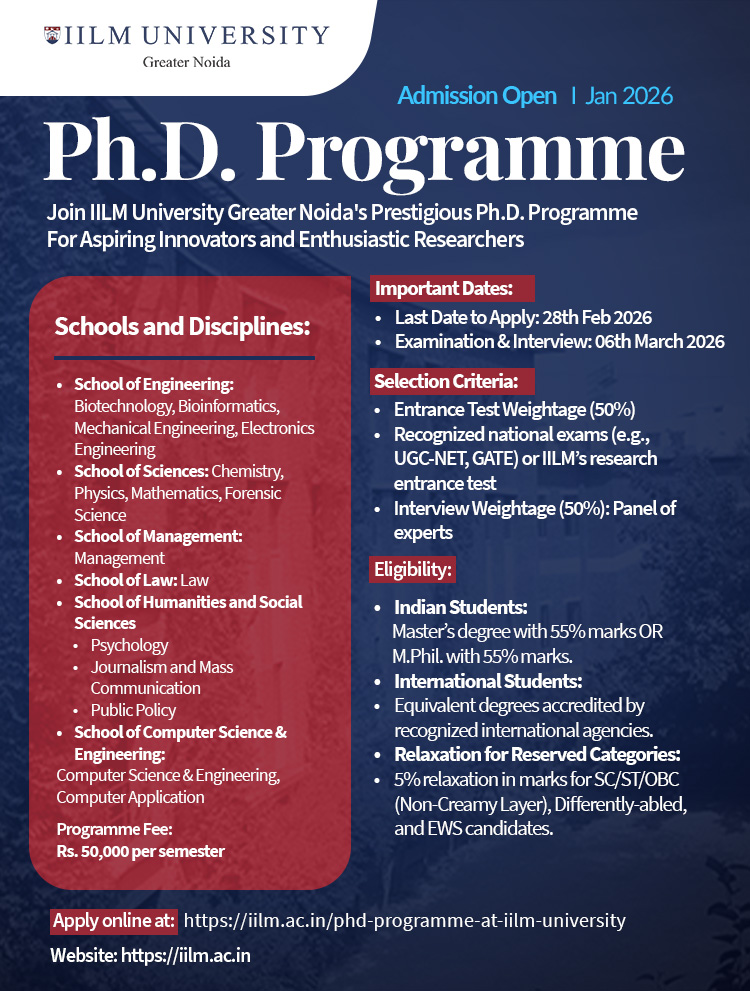

Equip students with in-depth knowledge of Generative AI, robotics, and machine intelligence, enabling them to innovate in advanced engineering fields.
Prepare students to address complex computational challenges through research, design, and development.
Enable the integration of AI technologies with industries like healthcare, automotive, and entertainment for impactful solutions.
Develop leadership and entrepreneurial skills for students to become pioneers in AI research, robotics, and related industries.


Delivering quality education with a legacy of three decades.

A strong, supportive alumni community spread across the globe.

Partnering with renowned global institutions for a holistic education experience.

Connecting students with leading employers for rewarding careers.

Eco-friendly campuses situated in prime, accessible locations.

Recognising and rewarding academic excellence with financial support.

Learn from experts with rich academic and industry experience.

Experience an engaging and dynamic environment both inside and outside the classroom.

A curriculum designed to meet global standards of education and practice.
A Bachelor’s degree in any discipline with a minimum of 50% aggregate marks (45% for SC/ST/Reserved candidates) is required.
Training
The School focuses on holistic student development through technical training and soft skills enhancement. Expert guidance is provided for career planning, aptitude building, and placement preparation, including GDs, PIs, and mock interviews.
Internships
Internships integrated into the NEP-compliant curriculum offer industry exposure, fostering professional growth, character development, and real-world readiness.
Placements
A dedicated Placement Cell connects students with top career opportunities, ensuring they stay updated with industry trends and succeed in their professional journey.
NEP-Compliant Framework: Designed as per National Education Policy guidelines, ensuring academic excellence and holistic development.
Core Competency: Focus on essential skills in computer science to prepare students for industry demands.
Interdisciplinary Learning: Combines computer science with fields like AI, Cybersecurity, Blockchain, Cloud Computing, and IoT.
Flexible Curriculum: Choice-based learning allows students to select courses based on their interests and career goals.
Practical Learning: Includes projects, internships, and hands-on activities to develop critical thinking and problem-solving skills.
Research Opportunities: Encourages innovation and contributions to advancements in technology.
Industry Collaboration: Partnerships with leading companies provide real-world exposure and training.
Discover the exciting and in-demand career opportunities available to IILM Computer Science graduates:
Software Developer/Engineer: Design, develop, and maintain software applications, excelling in front-end, back-end, or full-stack development.
Web Developer: Create innovative websites and web applications, specialising in front-end, back-end, or cross-platform development.
Database Administrator (DBA): Manage, optimise, and secure organisational databases, ensuring efficient data handling.
Network Engineer/Administrator: Build and maintain robust networks with a focus on security, troubleshooting, and performance optimisation.
Cybersecurity Analyst: Safeguard systems and networks by monitoring threats, implementing security measures, and mitigating risks.
Data Scientist: Extract meaningful insights from complex datasets using machine learning and data analysis, driving business decisions.
AI Engineer: Develop cutting-edge AI systems leveraging machine learning, computer vision, and natural language processing.
Cloud Architect: Design and manage scalable cloud infrastructure on platforms like AWS, Microsoft Azure, and Google Cloud.
Mobile App Developer: Develop innovative applications for iOS, Android, or cross-platform devices, enhancing user engagement.
